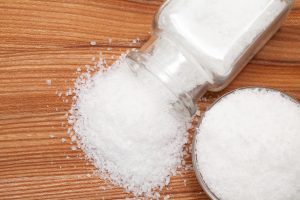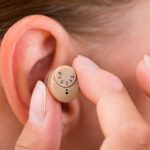
The onset of Meniere’s disease usually takes place between the ages of 20 and 50. It is a chronic condition. Not much is understood about Meniere’s disease and the exact cause is still unknown. There is no cure for Meniere’s disease, but the existing treatment options can offer symptom relief.
Aside from medical treatments, natural remedies and diet can also contribute to effective symptom management. The following recommendations specify what you should be eating in order to better control Meniere’s disease.
Recommendations for Meniere’s disease diet
Here are the dietary guidelines to follow when aiming to relief and manage Meniere’s disease.
Limit sodium intake: Salt regulates fluid, so lowering your intake can help relieve pressure in the ear, which can improve other symptoms as well.
Avoid caffeine and alcohol: Studies have shown that patients who restrict their caffeine and alcohol consumption have fewer symptoms than those who consume caffeine and alcohol regularly.
Identify and address allergies: Allergic inflammation can worsen symptoms in some patients, so being aware of your triggers can help you avoid allergens, thus reducing the symptoms.
Stay well hydrated: Being well hydrated can help flush out excess salt and clear out any toxins and bacteria that could be contributing to Meniere’s disease.
Balance your carbs and protein: Carbohydrates are broken down into simple sugars, raising insulin. Protein, on the other hand, helps regulate insulin. Balancing the two can keep your blood pressure and glucose levels in check, which can affect Meniere’s disease progression.
Natural remedies for Meniere’s disease

- Reducing and properly managing stress, as it has been shown to aggravate Meniere’s disease symptoms
- Exercising regularly (to further promote stress reduction)
- Wearing a hearing aid
- Reaching out to support groups
- Quitting smoking
- Trying cognitive behavioral therapy as a stress reliever
By following a Meniere’s disease-friendly diet and making the appropriate lifestyle changes, you can have greater success in managing the symptoms of Meniere’s disease.